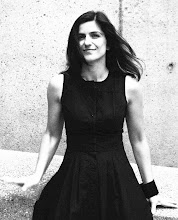on methodology
 |
| Groundwork publication: sketchbook & catalogue with a map. Photo credits: DAT journal |
In two recent posts, I had referred to Groundwork symposium & exhibition that took place at Wentworth Architecture in May. Here is my contribution to the exhibition's publication that includes my approach on methodology through my pedagogy:
On Methodology
The word methodology is etymologically linked to the Ancient Greek word μέθοδος (=method); a composite word deriving from two words: μετά (= meta/ after), and οδός(= hodos/ way, threshold, path, journey). Originally the word means the branch of knowledge (-ology) that seeks what follows after. My approach on methodology directly derives from my teaching pedagogy, which prioritizes learning through making, experimentation, and individual voice. This view on relationships between methodology and thesis can be summarized by the Protheses and Thesis Lab efforts.
Protheses, a composite word deriving from pro (=pro, before) and theses (=positions), deals with all the research occurring prior to development of a thesis statement with emphasis towards an original one. Beyond this meaning of the required literature review that acknowledges the discourse, protheses also means intentions deriving from the original Greek word προθέσεις (= protheses). Through Protheses, I have been highlighting the need for both a rigorous (literature review), and a personal approach (one's intentions). To further expand what a methodology is, I curated the Protheses lecture series where I invited experts from diverse fields to present their design-research methodologies. Through these lectures, I have been interested to create analogies and loans between those fields and architecture, and to also engage the students into advanced workshops, conferences, and initiatives beyond Wentworth community.
The word methodology is etymologically linked to the Ancient Greek word μέθοδος (=method); a composite word deriving from two words: μετά (= meta/ after), and οδός(= hodos/ way, threshold, path, journey). Originally the word means the branch of knowledge (-ology) that seeks what follows after. My approach on methodology directly derives from my teaching pedagogy, which prioritizes learning through making, experimentation, and individual voice. This view on relationships between methodology and thesis can be summarized by the Protheses and Thesis Lab efforts.
Protheses, a composite word deriving from pro (=pro, before) and theses (=positions), deals with all the research occurring prior to development of a thesis statement with emphasis towards an original one. Beyond this meaning of the required literature review that acknowledges the discourse, protheses also means intentions deriving from the original Greek word προθέσεις (= protheses). Through Protheses, I have been highlighting the need for both a rigorous (literature review), and a personal approach (one's intentions). To further expand what a methodology is, I curated the Protheses lecture series where I invited experts from diverse fields to present their design-research methodologies. Through these lectures, I have been interested to create analogies and loans between those fields and architecture, and to also engage the students into advanced workshops, conferences, and initiatives beyond Wentworth community.
Thesis Lab, a term I developed for the Thesis studio emphasizes the experimental character a methodology may have, but also the potential links to other sciences, which may have (or not) already developed a rigorous methodology for their own purposes. In Thesis Lab I have been testing, together with the students, as potential architectural methodologies the following actions through repetition: experiments and tests, experiences and events, narratives and fiction, surveys and data collection, games and play, exhibitions and publications.
This Spring, the studio collectively tested the idea of an exhibition on methodologies. Neoplayformz exhibition has been less of a collection of artifacts, and more of an assembly of experiences in which its audience transformed from a spectator, to a (newspaper) reader, to a climber, to a gamer, to a guinea pig through a food experiment. The idea of an exhibition as an educational approach emerged out of the extensive use in both courses of e-publishing, where students use blogs and media platforms to comparatively document, and reflect on, their progress, and to essentially form their own experimental methodology from day 1: Through the constant action of exhibiting or/ and publishing, the students have been contributing their positions to the discourse through dialogue with the guests who are no longer reviewers, or guest crits, but co-producers in this experiment/ effort.
Zenovia Toloudi, Cambridge, May 2013
Groundwork was curated by the Student Exhibition Committee, which included Sam Altieri, Viviana Bernal, Erblin Bucaliu, Casey Galante, Nate Gove, Danielle Gray, Steven Hien, Bao Nguyen, Sam Partington, Liem Than, Mike Wojnarowicz, Craig Zygmund, Ryan Kahen as well as Joe Meucci, Sam Walusimbi and JT White from .DAT.
Print copies for the publication may be available via DAT journal
[ thedatjournal@gmail.com/ twitter: @itsdat_ ]




0 Comments:
Post a Comment
<< Home